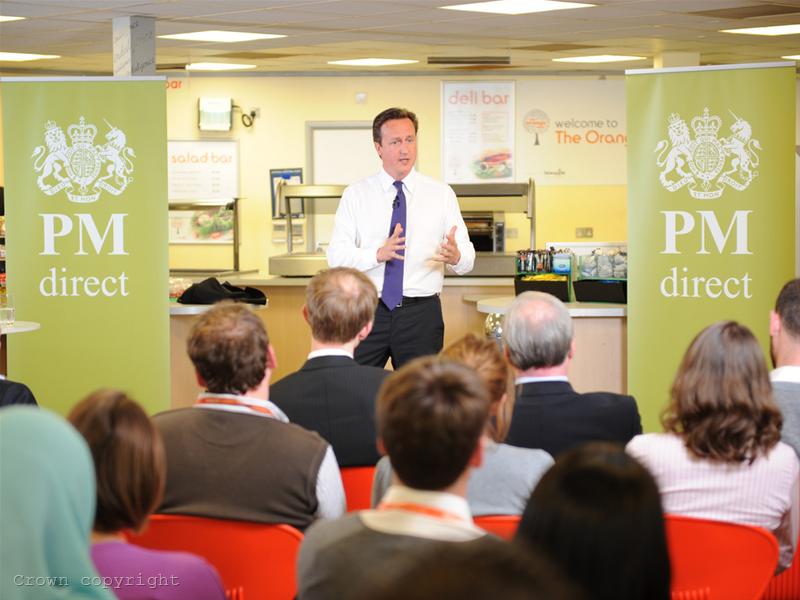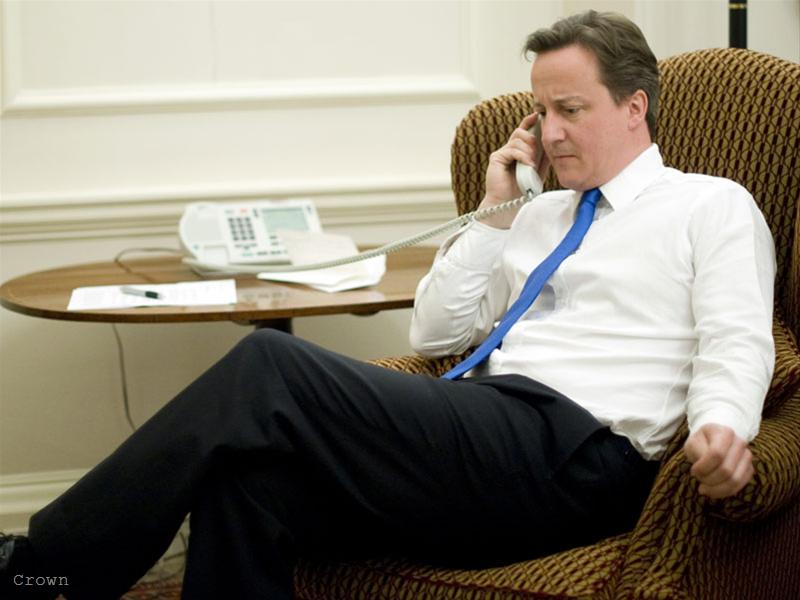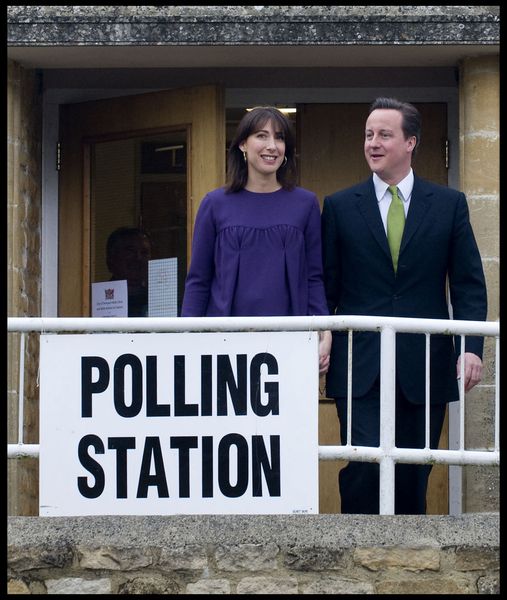Magna Carta, Churchill, Thatcher, Blair, ?
Adelina Marini, April 8, 2010
 History remembers names that have contributed to it with something different than previously known. It is not obligatory that this different thing is good or bad, but after all on the historic time lime assessments like good-bad, do not mean anything. Every influential person was controversial in his or her time, but an objective analysis of the long term effect of their actions often leads to their permanent stay in history. Such is the case with Magna Carta, Winston Churchill, Margaret Thatcher and, probably, Tony Blair.
History remembers names that have contributed to it with something different than previously known. It is not obligatory that this different thing is good or bad, but after all on the historic time lime assessments like good-bad, do not mean anything. Every influential person was controversial in his or her time, but an objective analysis of the long term effect of their actions often leads to their permanent stay in history. Such is the case with Magna Carta, Winston Churchill, Margaret Thatcher and, probably, Tony Blair.
Without having pretenses to be historically complete or comprehensive, I am arranging these historical facts in this order because they are very much related to the expectations from the parliamentary elections in Britain on May 6. Why?
Because Magna Carta is the first step in including more than two participants in government in the distant Middle Ages - God and the king. As Winston Churchill writes in his book the Great Republic - history of the United States of America, Magna Carta's significance lays on the foundation that the kings of England who claimed before that supreme power was a divine right, were asked to admit for the first time that they would govern with the consent of their citizens.
Of course it is a long story why and how events led to Magna Carta and, in fact, this story is quite edifying. I am mentioning it because it is very indicative for the political evolution of the Island, blessed with the chance of being an island relatively protected from wars and allowing blossoming and a lot of experiments in the quiet.
And regarding Winston Churchill, probably there is no need to explain why is he important for British history, and not only for the British one. He is one of those historical personalities for whom it is preferable for you to first be aware in what context you are assessing their contribution - whether internally or globally.
The same goes for baroness Margaret Thatcher, who became famous during her long rule as a British prime minister with the nick name Iron Maiden: because of her exceptional determination with which she imposed her political decisions, without bowing to pressure from anyone.
Magna Carta, Winston Churchill and Margaret Thatcher appeared on the scene in moments of serious global turbulences. Does this "rule" apply to Tony Blair? My opinion is firmly yes, because he was a prime minister of Britain in a time of transition of the world from the bipolar world of the Wall to a globalised world which allowed multipolarship and ... the global economic and financial crisis. This is why it is very important who will be the next premier of Britain, who will secure its place in the new world order.
And so - about a lull before a storm spoke some media just a week before the official start of the election campaign in Britain for the parliamentary elections on May 6. And not only a lull, newspapers wrote about exhaustion, lack of choice, electoral drooping and political wear in general. Nevertheless, on Tuesday the campaign started and the fight began as if it has been on pause so far and someone just clicked on the play button.
Three are the main players and for the first time in many years it is being discussed that after May 6th it is possible Britain to have a hung parliament. Leaders in the polls in the beginning of the campaign are the tories - the Conservative party, led by David Cameron - the support for them is rising with each day. Second are the Labour who governed Britain 3 mandates. The third player are the Liberal Democrats of Nick Clegg. In numbers the tories win the support of 41% of the respondents, the labour - 31% and the Lib Dems - 18 per cent.
The key issue in the upcoming debates and battles would quite naturally be the economy. So far the issue of conflict is the rising of health insurance contributions, for which the Labour insist. But this is not what will make these elections exceptionally important not only for the British themselves but for the entire EU and maybe the world.
The need of a change of the structure of the economy is what will bring political change too. Both citizens and politicians demonstrate they have realised that the current type of the British economy can no longer deliver the results it did before the Crisis.
Probably not to copy their special ally the US, the British tories chose for a slogan of their campaign "Vote for a change". I'd rather think that it was the need of a change that influenced the decision of the tories to chose this slogan and not their wish to copy the success of president Obama who, by the way is a democrat which in American politics means - left. The tories, roughly put are a right party.
In 6 points the party of David Cameron, indicated as a potential next prime  minister, pledges to act immediately to reduce the enormous British public debt; to boost entrepreneurship; to make Britain the most family-oriented country in Europe; to support health insurance; raise standards in schools; change politics. The latter means reduction of the number of MPs, cut administration by a third, and let taxpayers see where their money is being spent.
minister, pledges to act immediately to reduce the enormous British public debt; to boost entrepreneurship; to make Britain the most family-oriented country in Europe; to support health insurance; raise standards in schools; change politics. The latter means reduction of the number of MPs, cut administration by a third, and let taxpayers see where their money is being spent.
The Labour pledges to secure the economic recovery and to halve budgetary deficit through economic growth, fair taxes and cuts to lower priority spending. The slogan of the campaign of the left is "A future fair for all". The second pledge is turning to the family through keeping mortgage rates as low as possible, increasing tax credits for families with young children, providing new help for first-time buyers, etc. They also lean on high tech economy, green investment, control of immigration and guaranteed education.
 The party which will probably be the most wanted partner of the tories or the labour after the elections is the Lib Dems. The word fair is present one way or another in their election pledges too. In fact, the sociological conviction that probably Britain will have a coalition government, is strongly supported by the messages of Nick Clegg's party who claims that these elections will no longer be a two horses race.
The party which will probably be the most wanted partner of the tories or the labour after the elections is the Lib Dems. The word fair is present one way or another in their election pledges too. In fact, the sociological conviction that probably Britain will have a coalition government, is strongly supported by the messages of Nick Clegg's party who claims that these elections will no longer be a two horses race.
Fair taxes for all; a fair start for children; a fresh start for Britain; a fair, transparent and local politics; a fair and sustainable economy are the pledges the Lib Dems state in their programme.
Those are in a nutshell the basic moments of the election programmes of the main political forces that will compete until May 6. euinside will follow how the campaign is developing, whether the correlation of powers is changing because these elections are important for the EU in general. And last but not least, the general elections in the country where parliamentary democracy was born, are a good example for every nation which appeared to be free but is unprepared to face it. Like Bulgaria.
 | © Crown copyright
| © Crown copyright | © Crown
| © Crown | © Andrew Parsons
| © Andrew Parsons